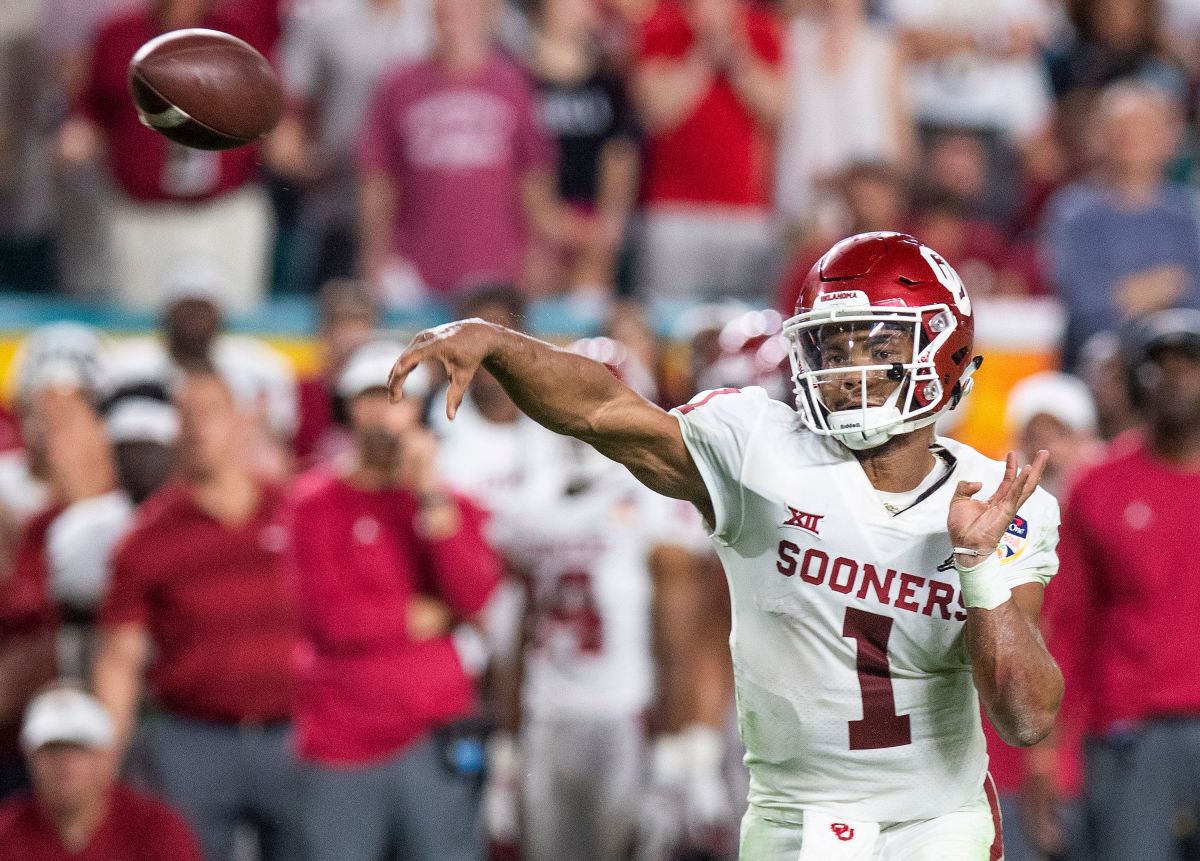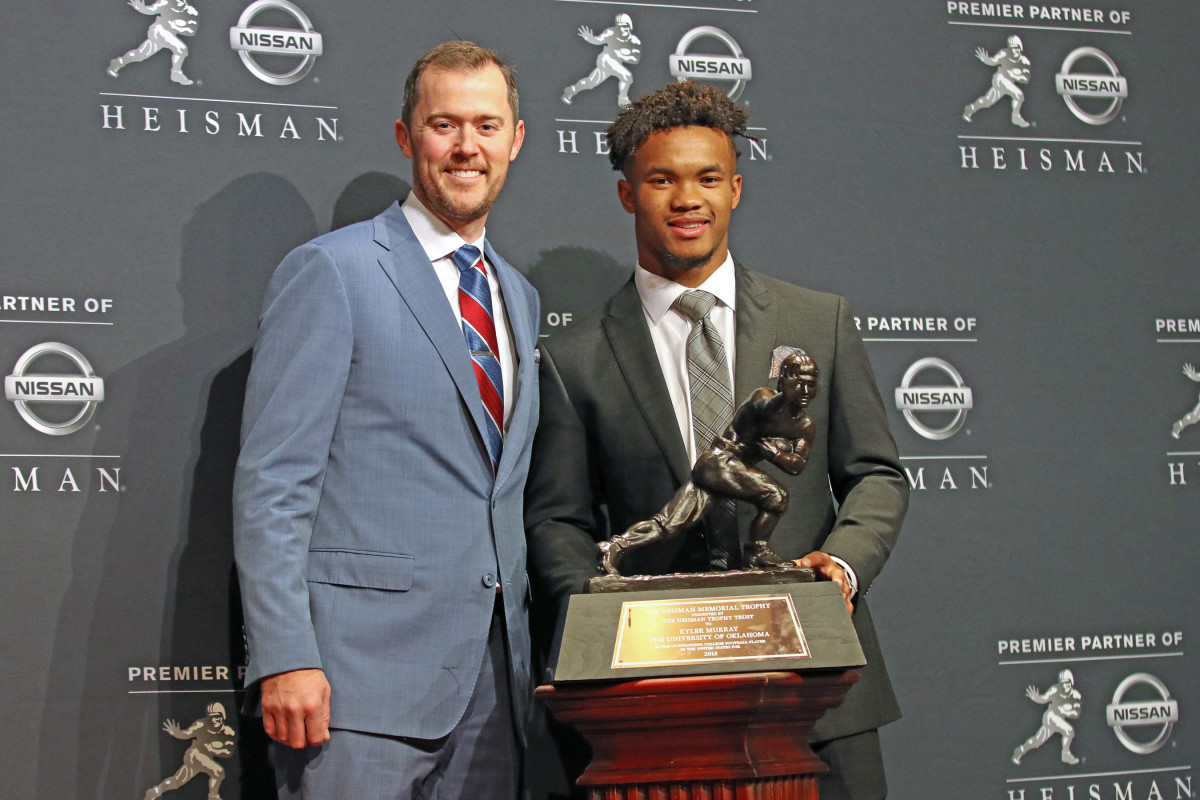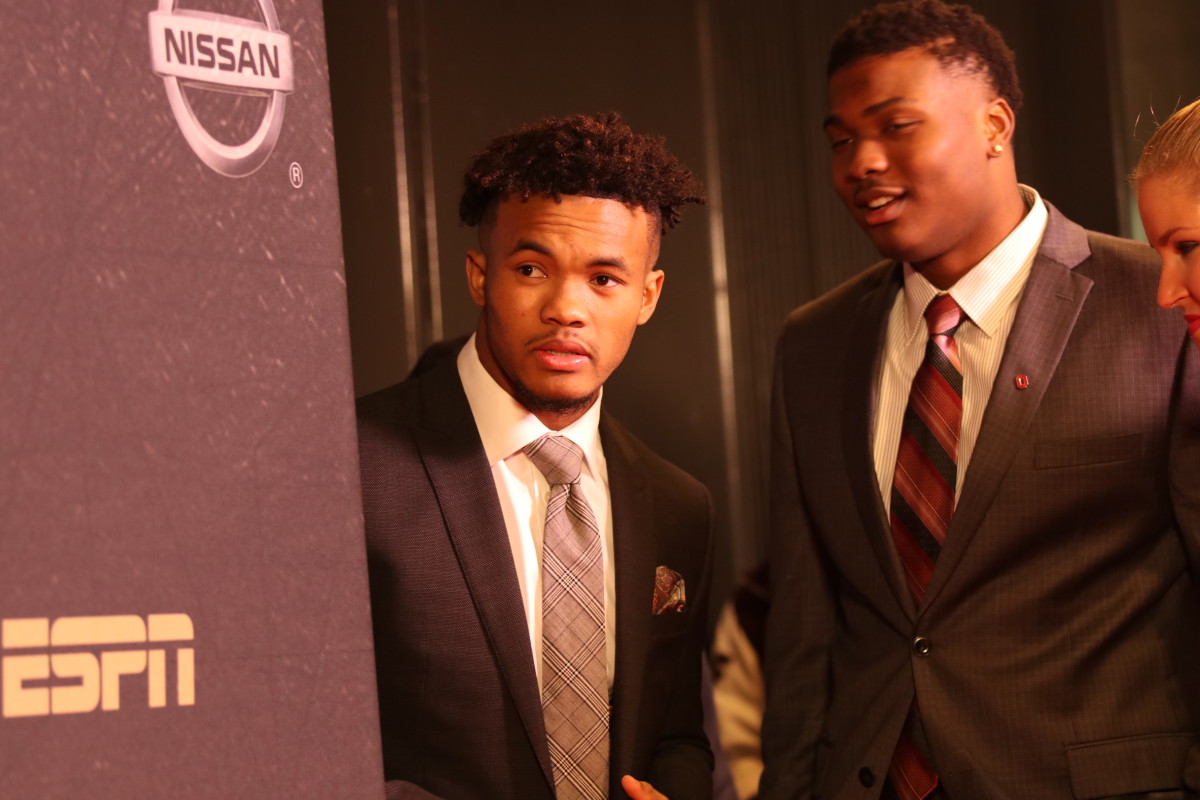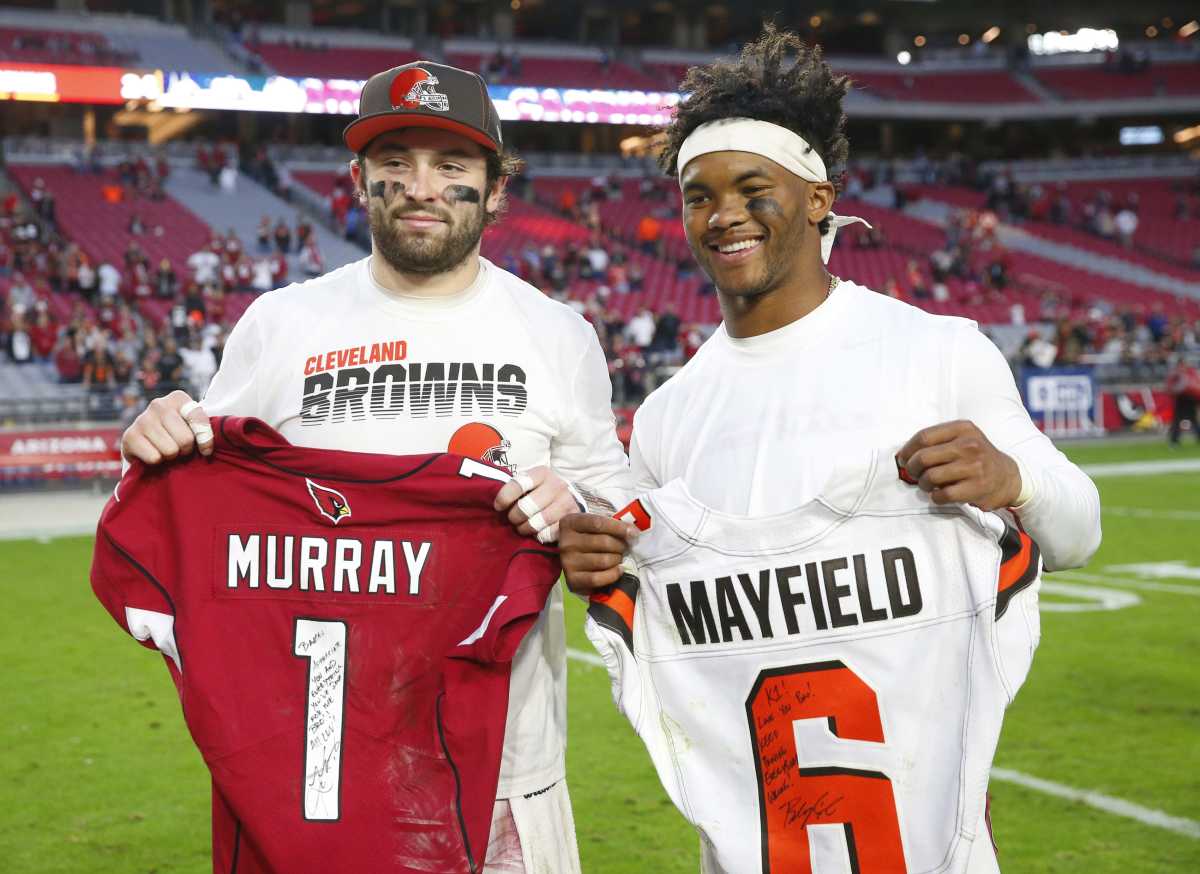Heisman Memories: Kyler Murray Fulfilled and Even Exceeded Unrealistic Expectations
Lincoln Riley told Bob Stoops that Kyler Murray would win a Heisman.
And that was long before the diminutive speedster with the golden arm became a Sooner.
Murray came to Oklahoma as a backup plan, and he played football for fun. But it worked out better than everyone expected — even those, like Riley, who might have had unrealistic expectations.

A 43-0 record and three state championships at Allen High School? Possibly the most storied career in the colorful history of all Texas schoolboys? And an even better baseball player?
Surely this was a quarterback who would win a Heisman Trophy, if not a national championship.
The former came true. The latter did not.
Read More Heisman Memories
Still, Murray’s enrollment and uneven freshman season at Texas A&M, his transfer to Oklahoma, his patience to wait behind Baker Mayfield, and his eventual ascension to college football’s most outstanding player — with a $4.7 million baseball contract already in his pocket — was stunning to witness.
Riley certainly recruited Murray out of high school. But as offensive coordinator at East Carolina, he never really had a shot at the No. 1 player in the country.
Then Riley got to Oklahoma, and he and Stoops were in the market for a quarterback transfer. Anticipating Baker Mayfield would eventually only play two seasons at OU, Riley dug up some film from some of the best transfers available.
Will Greer of Florida was amazing. Kyle Allen of Texas A&M was unbelievable.
But then Riley watched video of Murray.
“We all watch it,” Riley said in 2018. “We don’t really say anything. And when it ends, Bob looks over at me and says, ‘What do you think?’
“I said, ‘Well, I like the other two guys. But if Kyler comes here, he’s gonna win the Heisman.’ “

Murray did exactly that in his lone season as the Sooners’ starter, winning the 84th Heisman Trophy — and the Sooners’ seventh. That ties OU with Ohio State and Notre Dame for the most Heisman winners in college football history.
After his Heisman ceremony, Murray said “I never thought” — then said, “never mind.”
He always believed in himself. He just always figured his legacy would be in another sport.
Keep in mind, Murray’s magical season happened after the Oakland A’s drafted him ninth overall in the Major League Baseball Draft and agreed to let him play his one year of college football.
Which, of course, changed everything, earning him immortality in the elite Heisman fraternity and pushing him up the NFL Draft boards until the Arizona Cardinals selected him with the No. 1 overall pick.
As such, he’s the only human being on the planet to be taken in the first round of two major American sports drafts.
But it wasn’t always that way. After unrivaled perfection as a prep star, Murray signed with the Aggies out of high school — and his freshman season was a disaster. He completed just 59.5 percent of his passes, threw five touchdowns and seven interceptions, and was in and out of Kevin Sumlin’s lineup before finishing the season on the bench.

Murray has remained largely mum on his time in College Station, but in 2018, after winning the Heisman, he opened up a little.
“When I was at A&M in the transfer process, I remember just sitting in my room and being miserable,” Murray said then. “I was miserable. I was calling my mom and my dad and some other loved ones. I was like, ‘What should I do? I don’t want to be here anymore.’ I think many kids have gone through that situation.
“I've always taken the high road when it comes to that because when I left A&M, I was ‘the bad guy.’ I'll explain it all one day.”
When Murray finally decided he’d transfer, Oklahoma — and working with Riley — became a reality.
Murray and Riley mapped it out: a redshirt in 2016, then two seasons as the starter following Mayfield’s exit. On Christmas Eve 2015, one week ahead of OU’s Orange Bowl loss to Clemson, Murray signed with the Sooners.
The following spring, the Big 12 awarded Mayfield his extra year of eligibility, so Murray was made to sit again.
During the 2017 season, there were moments of anticipation that boiled over into frustration as Mayfield orchestrated one of the greatest seasons in OU history and won the Sooners’ sixth Heisman Trophy and became the No. 1 overall pick of the Cleveland Browns.
“The competitor in me,” Murray said, “was just a little frustrated for not being able to contribute the way that I want to.”
Finally, in 2018 — four months after the A’s drafted him — Murray was a starting quarterback again.

And it was something.
Murray joined Clemson’s Deshaun Watson as the only players in college football history with 4,000 yards passing and 1,000 yards rushing.
He set the school record for total offense with 5,362 yards, threw three of the 12 longest passes in school history, posted the fifth-highest passing yards total (4,361), accounted for 54 touchdowns (second to Sam Bradford’s record of 55) and broke Mayfield’s one-year-old NCAA record for passer efficiency rating (199.18).
Murray’s Sooners lost his only regular-season matchup with Texas (he got revenge in the Big 12 title game), and they lost his only trip to the College Football Playoff.
But he’ll be remembered for his 13 big wins — 12 games and one bronze trophy.
Murray beat out Alabama QB Tua Tagovailoa with 2,167 points to 1,871. Murray had 517 first-place votes, while Tagovailoa had 299. Ohio State quarterback Dwayne Haskins (783, 46) finished a distant third.
“Everybody sees the physical gifts that this guy has,” Riley said, ”and it’s really something special the way he can run, the way he can throw. But what a lot of people don’t understand is the type of competitor he is, how smart he is.
“And because of that, we’re all able to turn on the TV on Saturdays and see one of the greatest athletes that there’s ever been to do it. And I don’t say that lightly, but that’s what this guy is.”
